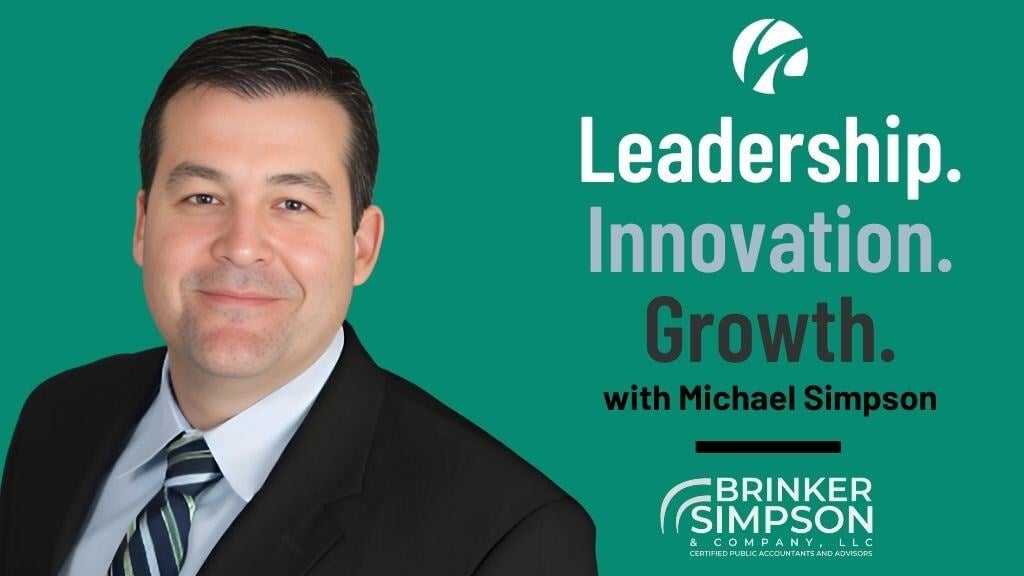2 min read
Building Firm Capacity Without People: Navigating the Talent Crisis in Accounting
The accounting industry is facing a profound challenge: a talent crisis that’s reshaping the landscape of firm operations and growth. Each year,...

David empowers firms to grow strategically by aligning innovation, insight, and execution. He leads WRC’s signature programs and advises firm leaders on M&A, digital growth, and leadership development.
Table of Contents
Capacity issues and the war for talent are nothing new to the accounting industry. But along with hybrid teams, work from home, and The Great Resignation, the COVID-19 pandemic also brought with it a heightening of these talent crises. Winding River Consulting asked Allan Fisher of Premier Financial Search (PFS), to lend us his insights on this incredibly timely and critically relevant topic at our latest MPB Alumni Community Quarterly Check-in. As one of the nation’s largest and most respected talent search firms with a focus solely on the accounting industry, Allan has been a valued strategic partner to accounting firm leadership in developing and advising on talent strategy investments for more than 25 years. Here are the critical takeaways from his time with us, including a dynamic Q&A.
After contracting sharply in the Great Recession, the U.S. economy experienced a time of growth beginning in mid-2009 that spanned the decade that followed. Thanks to stimulus packages enacted by Congress, by the end of 2019 and just before the beginning of the pandemic, Allan was seeing a talent market tighter than any he’d encountered in his 25 years in the industry. Today, two years later, it’s even tighter. Indeed, just days after this check-in was recorded, KPMG’s U.S. chair and CEO published this LinkedIn post announcing an additional $160 million in salary increases just three months after dishing out raises of 10% or more in November 2021. Buckle your seat belts and loosen your purse strings.
Between stimulus and growth, the pressure to add capacity has been huge for nearly three years. There is more business than ever and fewer qualified individuals to perform that work. Pre-covid, when looking to hire, firms were largely limited by their geography. Lateral hires were almost always poached from local competitors unless, by some stroke of luck, a candidate matching your needs relocated to the area. To some extent, your local competitor is still your biggest threat to talent retention. However, COVID-19 forced us all to embrace remote work and disintegrated geographic boundaries and, as a result, that list is getting longer.
Once firms realized that productivity wasn’t being impacted by Covid work from home policies, and was potentially even more efficient, they slowly began to consider remote hiring as an opportunity to broaden the talent pool. Coastal firms and those operating out of locations with higher costs of living began to seek out talent located in the central states and the Midwest. The result? Those firms uncovered a real win-win for themselves and for their new recruits. Firms were able to lure highly pedigreed talent, often in combination with a stereotypically Midwestern work ethic, with their Los Angeles- or New York City-sized compensation packages and the ability to work from home, for good. By the end of 2020, 10% of Allan’s clients were hiring remotely – those 8 firms hired 45 people on a remote basis.
The model is viable and certainly changing the conversation for firms of all sizes and individuals, alike. Today, a third of Allan’s clients are hiring fully remote and a quarter of his clients’ employees are fully remote.
Private industry is yet another challenge. After the 2021 tax year (October 15), tax professionals are burned out. Current talent bears the brunt of the capacity crisis as team members are asked to do more with less. Indeed, one client put a moratorium on PTO for the month of August as they sought to hire another five staff to support capacity with the promise of additional PTO at the end of the year. For those that can’t weather another busy season or PTO moratorium, private industry has become a mythical haven of 40-hour work weeks, great benefits, and stock options and many are leaving accounting in pursuit of those dreams.
Finally, as referenced in the introduction, the Big 4 are added to the list. $15,000-$20,000 sign-on bonuses are being offered for Senior Manager positions. The kicker? Some are leaving better titles at smaller firms for lower titles and the prestige of having The Big 4 on their resume.
So, with pressure from four sides, how do we combat attrition?
If nothing else, the biggest takeaway is that retention is the greatest tool in the war for talent. People in firms today are more diverse than ever, especially in terms of what motivates them to stay with their employer. Solutions are never one-size-fits-all. According to Allan’s experience, employees are looking for, alternately (but in order of popularity):
If you can allow flexibility around work schedules, do it. If you can make hybrid or completely remote work permanent, do it! Some employees are finding they like the flexibility of working asynchronously. Focus on productivity rather than hours.
Not only is competition driving up compensation averages, but so too is inflation. Consider carefully your budget and other constraints as you evaluate your current and future compensation structures and whether and how they’ll help you achieve (or tank) growth and productivity goals over time.
You can’t help who you are. This third point doesn’t mean that you need to be everything to everyone, or even that you need to bend on issues that are important to you. What’s important to note here, is that employees desire a choice and a voice. And, if they don’t feel they have a choice or a voice in your organization, they will find an organization where they do. Are you an organization that feels the need to have employees in the office? Give employees options to vary their time in office and from home. Request feedback. Listen.
Those that fail don’t make a commitment (collective, and at the top) to help support the success of the hybrid/remote model. Especially critical to success are your HR team, onboarding, and interview team. Allan’s recommendations for successful virtual interviewing are as follows:
Using this model creates a framework to highlight your organization’s greatest assets and attributes.
I don’t recommend this strategy. Even if a ton of chemistry has been established, it’s still intimidating for both the client and the candidate. The candidate’s reaction might be read into when they simply haven’t had enough time to process the entirety of the offer. As well, incorrectly assuming you’re the only firm they’re interviewing with may be detrimental.
Instead, you can ask “What else have you got going on?” or “Based on what you’ve seen, how do we stack up?” “What’s your timetable on a decision?” or “We think you’re terrific and that you’d be a great fit. We have a partner meeting tomorrow morning to talk about next steps. So, do me a favor, I don’t want to make any assumptions. Let me know what you think. Let me know if this is mutual and if you’d give a good offer serious consideration.” When the candidate follows up with enthusiasm, our success rate is really good.
I do an annual Salary Survey in conjunction with the California Society of CPAs. The survey speaks to all metrics – interns, entry level, staff, and above based on years of experience, billing rates, etc. Average Seniors (2 years’ experience, CPA) average compensation is $85,000 per year. A first-year Manager is making, on average, $110, 000. You can typically add about 8% for each year of experience. A Senior Manager in tax makes $160,000 (audit makes about $10k less due to succession in tax practices being an issue). Those with higher degrees, or niche expertise will shift these up.
However, I would caution you that between August of ’21 and October ’21, offers jumped 10%. 40% of the firms that I know did market adjustments (bringing employee comp up to market right then and there +6%-10%). And, as an aside, you can’t raise billing rates without raising their pay – they know their billing rates. They also know the status of your PPP. Keep these things in mind when designing your compensation models.
In California, historically salaries have gone up 4-6%, year over year for 11 years – that’s average. For an employee producing below average work that number is 0-3%, and 8-12% for an above average employee. These numbers are no doubt going to be higher than they’ve ever been.
The AICPA Trends Report shows who’s graduating and who’s being hired. You can see that, as an industry, we’ve peaked – probably 5 years ago. There simply aren’t enough people entering the profession to fulfill demand. Consultants have suggested hiring talent without accounting degrees, but the problem is here. The solutions will be found in raising rates, offshoring, using automation, but also in really being selective about which clients we’re going to work with. This, by the way, is a great retention strategy. People increasingly care about the clients they’re working on and the values we live when we choose our clients. Culling clients and raising rates isn’t just good for bottom line, it will keep employees engaged.
It’s happening, but mostly at larger firms. I don’t place a lot of people from Big 4 because they’ve likely never prepped a return (due to offshoring).
It’s important to create a strategy of inclusion for those working remotely. That begins with commitment and continues with onboarding. This begins the second someone accepts your offer. Have multiple people be touchpoints. As soon as they accept, have multiple people reach out. Send a gift. Make the experience a little stickier. Who’s going to reach out and at what intervals? The two weeks between acceptance and start date can be a no-man’s land – don’t let it be! What’s going to happen the first week? What will happen at the end of the week? How do we promote engagement?
There are things that can be done to make them feel connected initially and in an ongoing manner. Plan live, in-person get-togethers for a good mix of professional and personal development. Again, can you assign a culture champion? The people who will be paving the way for the answers to these questions are going to be members of this alumni community or your alliances. You don’t have to figure it all out and you don’t have to have all the answers now. I suggest you also continue participating and looking to them for thought leadership.
With all the market forces influencing the accounting industry’s talent pool, firms are looking for new and innovative ways to reach and draw in their desired targets and keep the talent they already have. Given the latest data, the demand for talent in accounting will continue to outstrip supply for the foreseeable future. But the new paradigm of remote work, hybrid schedules, and virtual interviewing/onboarding, when utilized thoughtfully, can be a real boon for firms willing to expand their labor pool to points outside their geographic location. Together with a thoughtful compensation and benefits package, a desirable culture able to be conveyed through virtual channels, and the flexibility to work asynchronously at times, it just might help you stay competitive in the war for talent.
For a more in-depth look at hybrid and remote work environments, check out our new book, The Hybrid Workforce.
Are you experiencing capacity issues? Contact Winding River Consulting to see how we can help.

2 min read
The accounting industry is facing a profound challenge: a talent crisis that’s reshaping the landscape of firm operations and growth. Each year,...

4 min read
In the accounting industry’s current labor market, investing in employee experience is crucial to sustaining your firm’s success. To retain top...

3 min read
In this episode of Making Waves, host David Toth connects with Michael Simpson, Managing Partner of Brinker Simpson, a $14 million firm making...